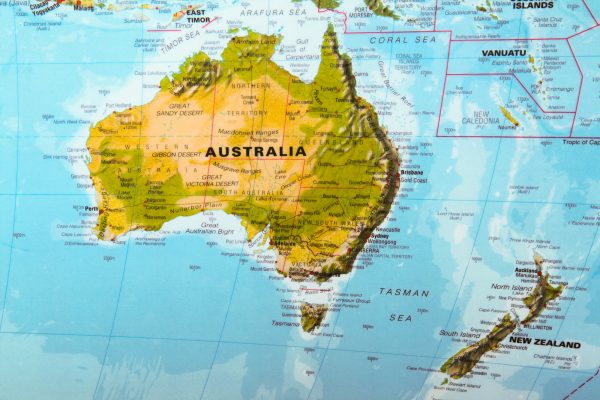
Last week, former Australian Prime Minister Malcolm Turnbull delivered a speech at the National Press Club of Australia. The speech was focused on the new AUKUS arrangement between Australia, the United States, and the United Kingdom and its central component: Australia obtaining nuclear power submarines from its two allies. Turnbull explained his own calculations around Australia’s complicated quest to update its submarine fleet, as well as what he felt was the messy process that led to the AUKUS deal. In particular, he referenced the sidelining of France, one of Australia’s closest security partners.
In his characteristic style, Turnbull’s speech was embellished with significant detail about the nuclear technology required to maintain such submarines, and highlighted the important point that if Australia wasn’t going to develop its own domestic nuclear industry as a result of this deal then “we will no more be sharing nuclear technology with the U.S. than the owner of an iPhone is sharing smartphone technology with Apple.”
Yet Turnbull also made one crucial argument about Australia’s broader foreign policy that the process and announcement of the deal raised. More than advanced military hardware or powerful allies, it is Canberra’s ability to be trusted that is central to the country’s security. The clumsy and potentially deceitful way that the French were both kept in the dark and subsequently inadequately informed about the deal has repercussions that were not simply confined to the Élysée Palace or even the European Union, but also extended into Southeast Asia and the Pacific.
These are regions where Australia has invested considerable resources in building its influence, and regions that have become central pillars of Canberra’s diplomatic engagement. This is a framework that another former prime minister, Tony Abbott, described as “less Geneva, more Jakarta.”
Although given Abbott’s romantic and Anglocentric worldview he probably would have preferred to leave it as just “less Geneva,” there was also an important truth in his phrasing. Australia’s most vital relationship is arguably with its large and sprawling northern neighbor, Indonesia. It is also a relationship that requires constant and nuanced diplomatic attention.
Culturally, there are no two neighbors which are as distinct from one another as Australia and Indonesia. This presents a serious challenge to the countries’ relations, particularly an understanding of each other’s customs and norms. These are elements that usually provide other more culturally aligned neighbors the ability to build a more casual and natural trust between one another. Australia doesn’t have this luxury with most of its neighbors, not just Indonesia. It needs to do the extra work required to maintain a reputation as an honest and dependable friend.
At the very least, the sneaky way Australia handled the AUKUS deal diplomatically sent a signal to its neighborhood about Canberra’s lack of commitment to a certain diplomatic etiquette, and about the way the Australian government treats its friends. Countries throughout Southeast Asia and the Pacific may be asking themselves what Australia’s word is worth. What is Canberra’s commitment to the agreements that they have with Australia?
Australia did send senior military officials to Jakarta in the days following the AUKUS announcement to explain the deal to the Indonesian government and reaffirm Canberra’s commitment to its partnership with ASEAN. However, these practical responses may be insufficient in alleviating a perceived cultural problem in Australia.
Australian domestic political culture must already look particularly cutthroat to many of the country’s neighbors. The ever-present threat of being stabbed in the back by your own party has had a corrosive effect on Australian politics over the past decade. The risk of this rough and turbulent culture bleeding over into Australia’s foreign policy – as France might feel it has – is something that the Australian government should be keenly aware of, and seek to address. The stakes are far too high for Australia’s neighbors to feel the same way.
Australia domestic politics also has another detrimental feature that prevents it from enhancing its trust within its immediate region. Australia under-utilizes the significant asset it has with the country’s multicultural make-up. The structural barriers that Asian Australians face to become parliamentarians means that the country’s decision-makers lack the cultural knowledge required for Canberra to engage in a sophisticated manner with its culturally diverse neighborhood.
These limits that Australia places on itself are compounded by acts of bad faith, as France most definitely feels it has been the recent victim of. If Australia is serious about prioritizing its immediate region, and understands that the country’s security is tied to the strength of its relationships in its neighborhood, then there needs to be a recognition that graceless handling of the AUKUS agreement cannot be repeated.
As Turnbull noted in his speech “If we want to have influence in our region we must be trusted. Our word must be our bond.”
AUKUS, Australia, and the Importance of Trust in Foreign Policy
Source: Frappler

0 Comments